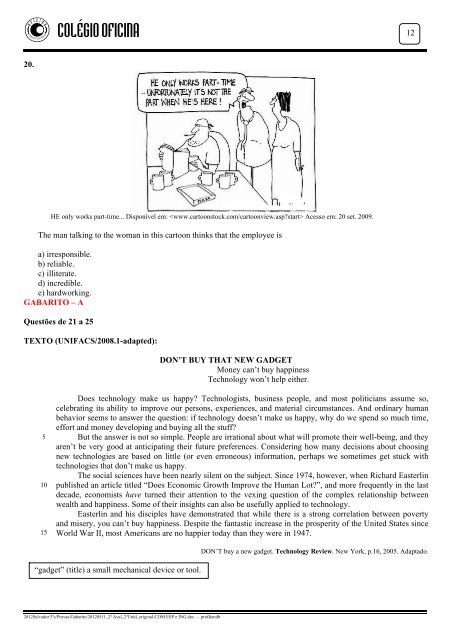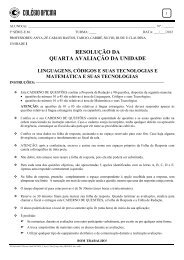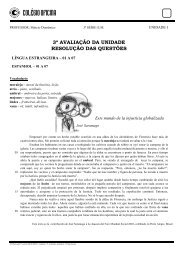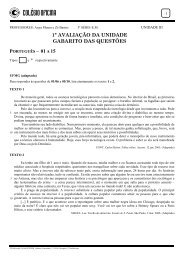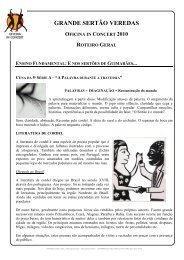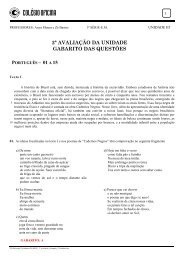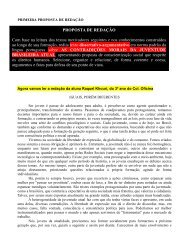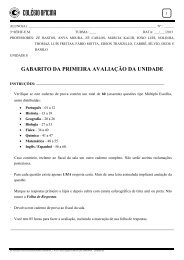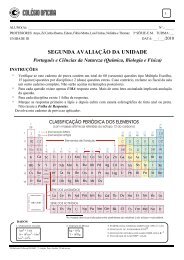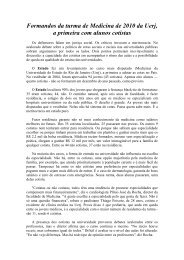Create successful ePaper yourself
Turn your PDF publications into a flip-book with our unique Google optimized e-Paper software.
20.<br />
COLÉGIO OFICINA<br />
HE only works part-time... Disponível em: Acesso em: 20 set. 2009.<br />
The man talking to the woman in this cartoon thinks that the employee is<br />
a) irresponsible.<br />
b) reliable.<br />
c) illiterate.<br />
d) incredible.<br />
e) hardworking.<br />
GABARITO – A<br />
Questões de 21 a 25<br />
TEXTO (UNIFACS/2008.1-adapted):<br />
5<br />
10<br />
15<br />
DON’T BUY THAT NEW GADGET<br />
Money can’t buy happiness<br />
Technology won’t help either.<br />
Does technology make us happy? Technologists, business people, and most politicians assume so,<br />
celebrating its ability to improve our persons, experiences, and material circumstances. And ordinary human<br />
behavior seems to answer the question: if technology doesn’t make us happy, why do we spend so much time,<br />
effort and money developing and buying all the stuff?<br />
But the answer is not so simple. People are irrational about what will promote their well-being, and they<br />
aren’t be very good at anticipating their future preferences. Considering how many decisions about choosing<br />
new technologies are based on little (or even erroneous) information, perhaps we sometimes get stuck with<br />
technologies that don’t make us happy.<br />
The social sciences have been nearly silent on the subject. Since 1974, however, when Richard Easterlin<br />
published an article titled “Does Economic Growth Improve the Human Lot?”, and more frequently in the last<br />
decade, economists have turned their attention to the vexing question of the complex relationship between<br />
wealth and happiness. Some of their insights can also be usefully applied to technology.<br />
Easterlin and his disciples have demonstrated that while there is a strong correlation between poverty<br />
and misery, you can’t buy happiness. Despite the fantastic increase in the prosperity of the United States since<br />
World War II, most Americans are no happier today than they were in 1947.<br />
“gadget” (title) a small mechanical device or tool.<br />
2012Salvador/3ªs/Provas/Gabarito/20120511_2ª Aval_2ªUnid_original-COM ESP e ING.doc – prof&mdb<br />
12<br />
DON’T buy a new gadget. Technology Review. New York, p.16, 2005. Adaptado.


